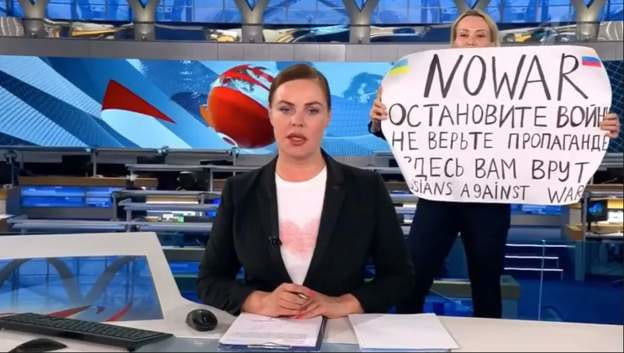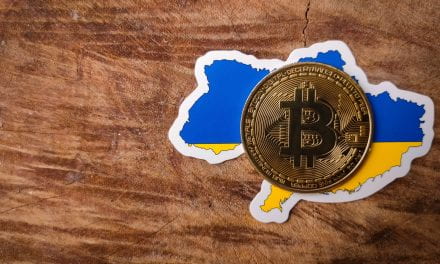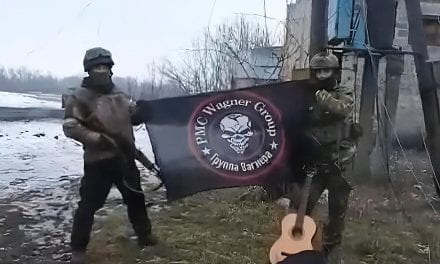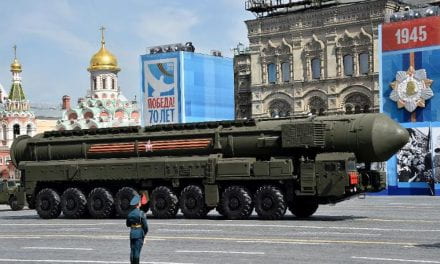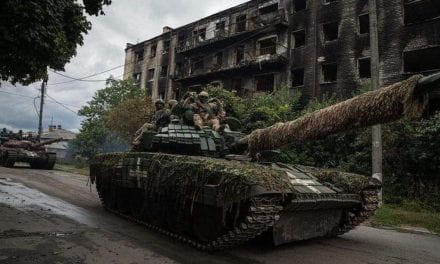Introduction
In 2021 Russia ranked 150 out of 180 countries in the World Press Freedom Index. This annual ranking regressed from 149 to 150 following the arrests of journalists reporting on anti-government protests and the Russian government’s inability or unwillingness to prosecute the murders of and assaults on journalists. [1] These acts of censorship by the Russian government, by design, reduce the freedoms of journalists and hinder citizens’ ability to obtain accurate and quality information. Russia was classified as a “difficult situation” [2] for journalists by the World Press Freedom Index prior to Russia invading Ukraine in February 2022. [3] Now, in the midst of a deadly war, Russia has strengthened its censorship and indoctrination campaigns, determined to keep citizens in the dark regarding its malicious actions in Ukraine.
On March 4, 2022, Russian President Vladimir Putin signed a law that further hinders free speech and deters journalists from using information not supported by the Russian government when reporting on the war in Ukraine. Those found to be spreading what the Kremlin classifies as “false information” about the war in Ukraine can be subject to up to 15 years in a Russian prison. Even the word “war” itself is not allowed, as the Kremlin only recognizes the efforts in Ukraine as a “special military operation.” [4] Facebook, Twitter, and major foreign news sources are now inaccessible to Russian citizens. [5] All of these practices are excused as protecting national interest [6], a common excuse for the indoctrination of wartime media practiced by many world governments. Despite claims to protect the Russian national interest, access to accurate information is a basic human right, even if the Russian government does not respect it as such.
Russia and the Right to Free Media
Both resolution 59 of the United Nations General Assembly and Article 19 of the Universal Declaration of Human Rights recognize freedom of information and the right to free media as a basic right. [7] While neither of these documents are legally binding, the International Covenant on Civil and Political Rights (ICCPR) is legally binding for all signatory states, one of which is the Russian Federation. [8] Article 19 of the ICCPR states that “Everyone shall have the right to freedom of expression; this right shall include freedom to seek, receive and impart information and ideas of all kinds, regardless of frontiers, either orally, in writing or in print, in the form of art, or through any other media of his choice.” [9]
Despite Russia being a signatory to the ICCPR, the Russian government did not respect the freedom of information and media prior to the war in Ukraine, as evident through the arrests of journalists. Now, with a new law essentially criminalizing the right to the distribution of truthful information perceived as harmful to the Russian government’s intentions, freedom of information within Russia is under attack as independent news sources within the country shut down to avoid any possible prosecution. [10]
Russia and Wartime Media
Although Russia symbolically respects the right to free media, its most recent actions have revealed true beliefs regarding the freedom of information through the tyrannical crackdown on journalists in the name of national security. In the three days following March 4, over 140 individuals were detained under the new law. According to Amnesty International, the Russian government has also blocked and forcefully closed independent news stations, leading to at least 150 journalists fleeing Russia by March 10. [11] Coupled with the blocking of social media sites barring citizen journalism, the Russian people are reliant on biased, state-run media.
Russia is not alone in blocking or reducing the freedoms of the media during wartime. Even in the United States, while the country is at war, journalists, in compliance with US law and wartime restrictions, report on war-related information less openly in the interest of national security and morale. [12] This is the same claim the Russian government is employing now, that current media laws are in the national interest. Yet, with Russia’s already rocky relationship with honoring journalistic freedoms, the new law appears to have an underlying agenda that goes beyond wartime media measures. The Kremlin’s current actions are clear efforts to stifle freedom of speech, a right that was already limited to the Russian people prior to Russia’s invasion of Ukraine. This trend of media censorship began far before the Russian government was operating in the context of wartime, which it is actively denying the existence of.
With the implementation of this new law, the arrests of journalists have begun. On April 13 two members of the media were arrested and charged with sharing “knowingly false information about the Russian Armed Forces,” now facing a maximum prison sentence of 10 years if convicted. [13] Mikhail Afanasyev, the editor-in-chief of the online journal Novy Fokus, was arrested following a publication that claimed 11 riot police had refused deployment to Ukraine. All computers and digital equipment belonging to Afanasyev were seized by the Russian government during a search of his home. [14]
Sergi Mikhaylov, founder of and author for the newspaper LIStok, was arrested due to the supposed call for sanctions against Russia in his newspaper. In addition to Mikhaylov’s arrest, LIStok was fined nearly 4,000 USD after the newspaper’s offices and the home of the editor-in-chief were searched. [15] Also on April 13, four student journalists were prosecuted under the new law. After sharing an online video defending the right to assembly for young Russian citizens, the four students were sentenced to two years of corrective labor. [16]
Perhaps the most extreme and publicized case yet is the arrest of Marina Ovsyannikova, an editor at state-controlled Channel 1 news. On March 11 Ovsyannikova abruptly ran behind the anchor during a live news segment with a sign protesting the war in Ukraine. The broadcast cut out after seconds, but not before audiences could read the sign that stated, in Russian, “No war, stop the war, don’t believe the propaganda, they are lying to you here.” [17] She also posted a pre-recorded video online where she admitted to and apologized for contributing to Russian propaganda while working at Channel 1. After being charged for organizing an unauthorized public event, Ovsyannikova told reporters that she was interrogated for 14 hours, was prevented from sleeping for two days, and was denied access to lawyers, family, or friends. Ovsyannikova has been fined 280 USD for the video message posted online but could still be further prosecuted under the law banning “false information” about the Kremlin’s actions in Ukraine. [18]
Conclusion
The repressive actions conducted by the Russian government are not protecting national interest; they benefit the regime of the Russian government despite harming the interest of the Russian people. In the end, it is the Russian people that suffer the most. Without accurate information regarding their government’s intentions, the people are either forced into silence or become passive consumers of state media. When dictators take away the public’s right to knowledge and ability to gain knowledge, the people have much less of a choice in compliance. Those brave enough to stand up and speak out in Russia are met with police and long prison sentences.
As time continues, those willing to supply the public with accurate information will decrease with the continued arrests and intimidation, all while the Russian government’s power over the people will continue to grow. With the loss of knowledge comes the loss of power; why would the Russian Federation respect freedom of information as a basic human right when it compromises the regime’s true intentions?
References
[1] Reporters Without Borders. (n.d.). Russia : Stifling atmosphere for independent journalists. World Press Freedom Index. Retrieved April 26, 2022, from https://rsf.org/en/russia
[2] Reporters Without Borders. (2019, March 4). Detailed methodology. RSF. Retrieved April 26, 2022, from https://rsf.org/en/detailed-methodology#:~:text=The%20press%20freedom%20map%20offers,points%3A%20Problematic%20situation%20(orange)
[3] Kirby, P. (2022, April 17). Why has Russia invaded Ukraine and what does Putin want? BBC News. Retrieved April 26, 2022, from https://www.bbc.com/news/world-europe-56720589
[4] Troianovski, A. (2022, March 4). Russia takes censorship to new extremes, stifling war coverage. The New York Times. Retrieved April 26, 2022, from https://www.nytimes.com/2022/03/04/world/europe/russia-censorship-media-crackdown.html
[5] Amnesty International. (2022, March 30). Russia: Kremlin’s ruthless crackdown stifles independent journalism and anti-war movement. Retrieved April 26, 2022, from https://www.amnesty.org/en/latest/news/2022/03/russia-kremlins-ruthless-crackdown-stifles-independent-journalism-and-anti-war-movement/
[6] Ibid
[7] United Nations. (n.d.). Freedom of information – united nations and the rule of law. Retrieved April 26, 2022, from https://www.un.org/ruleoflaw/thematic-areas/governance/freedom-of-information/
[8] United Nations Human Rights Office of the High Commissioner. (n.d.). Status of Ratification – Interactive Dashboard. Retrieved April 26, 2022, from https://indicators.ohchr.org/
[9] United Nations Human Rights Office of the High Commissioner. (n.d.). International Covenant on Civil and Political Rights. Retrieved April 26, 2022, from https://www.ohchr.org/en/instruments-mechanisms/instruments/international-covenant-civil-and-political-rights
[10] Ibid.
[11] Ibid.
[12] Rahdert, M. (1991). The First Amendment and Media Rights during Wartime. Villanova University Charles Widger School of Law. Retrieved April 26, 2022, from https://digitalcommons.law.villanova.edu/cgi/viewcontent.cgi?referer=https://www.google.com/&httpsredir=1&article=2764&context=vlr
[13] Amnesty International. (2022, April 18). Russia: Release journalists detained over critical coverage of Ukraine invasion. Retrieved May 8, 2022, from https://www.amnesty.org/en/latest/news/2022/04/russia-release-journalists-detained-over-critical-coverage-of-ukraine-invasion/
[14] Ibid.
[15] Ibid.
[16] The Guardian. (2022, April 14). Russia: Journalist arrested for ‘fake news’ about armed forces. Guardian News and Media. Retrieved May 8, 2022, from https://www.theguardian.com/world/2022/apr/14/russia-journalist-arrested-for-fake-news-about-armed-forces
[17] BBC News. (2022, March 15). Marina Ovsyannikova: Russian journalist tells of 14-hour interrogation. Retrieved May 8, 2022, from https://www.bbc.com/news/world-europe-60749279
[18] Ibid.

